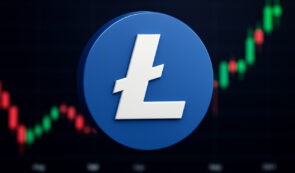Supreme Court to Rule on Whether Trump's Tariffs Exceed Presidential Powers
- U.S. Supreme Court will decide if Trump's 50% "Liberation Day" tariffs violate constitutional limits on executive power. - Legal challenge argues IEEPA doesn't authorize unbounded tariffs, with lower courts ruling against the 2019-2021 measures. - Economists estimate tariffs cost households $1,800/year while generating $223B revenue for Treasury. - Ruling could redefine presidential trade authority, either limiting future unilateral actions or expanding executive power precedents.
The forthcoming decision by the U.S. Supreme Court regarding President Donald Trump’s extensive “Liberation Day” tariffs could significantly alter the distribution of authority between Congress and the executive branch, potentially impacting both the economy and global trade. The dispute, Learning Resources Inc. v. Trump, questions whether Trump exceeded his constitutional powers by using the International Emergency Economic Powers Act (IEEPA) to implement tariffs up to 50% on imports from almost every nation, as highlighted in a
This legal battle gained traction after a blog post by George Mason University law professor Ilya Somin prompted a group of small businesses to challenge the tariffs, arguing that they represent an unconstitutional overreach of executive power, according to a

The Trump administration maintains that the tariffs are essential to address what it calls a “national emergency” caused by trade deficits, which it argues endanger American industries and national security. Solicitor General D. John Sauer argued before the court that IEEPA empowers the president to “regulate” imports, including through tariffs, during emergencies, according to the
Experts caution that these tariffs have already increased annual costs for the average household by $1,800, according to
Although the court’s 6-3 conservative majority has often sided with the Trump administration, justices including Neil Gorsuch and Amy Coney Barrett have voiced concerns about unchecked executive power. If the court rules against the tariffs, Trump may have to depend on more limited statutes, such as the Trade Act of 1974, which only permits temporary, targeted tariffs.
As deliberations continue, the case has attracted international interest, with countries like Singapore and India watching for possible changes in U.S. trade policy. The ruling, anticipated by December, will not only decide the future of Trump’s tariffs but will also influence the legal boundaries for presidential action in economic and foreign policy.
Disclaimer: The content of this article solely reflects the author's opinion and does not represent the platform in any capacity. This article is not intended to serve as a reference for making investment decisions.
You may also like
BlackRock Clients Offload $127M in Bitcoin Holdings
Litecoin Price Rebounds, Closing in on $100 as Network Activity Rises

Zcash Explodes 85% in a Week — Analysts Eye $1,000 Target Next

Cardano Faces Whale Sell-Off as Midnight Network Activity Skyrockets
